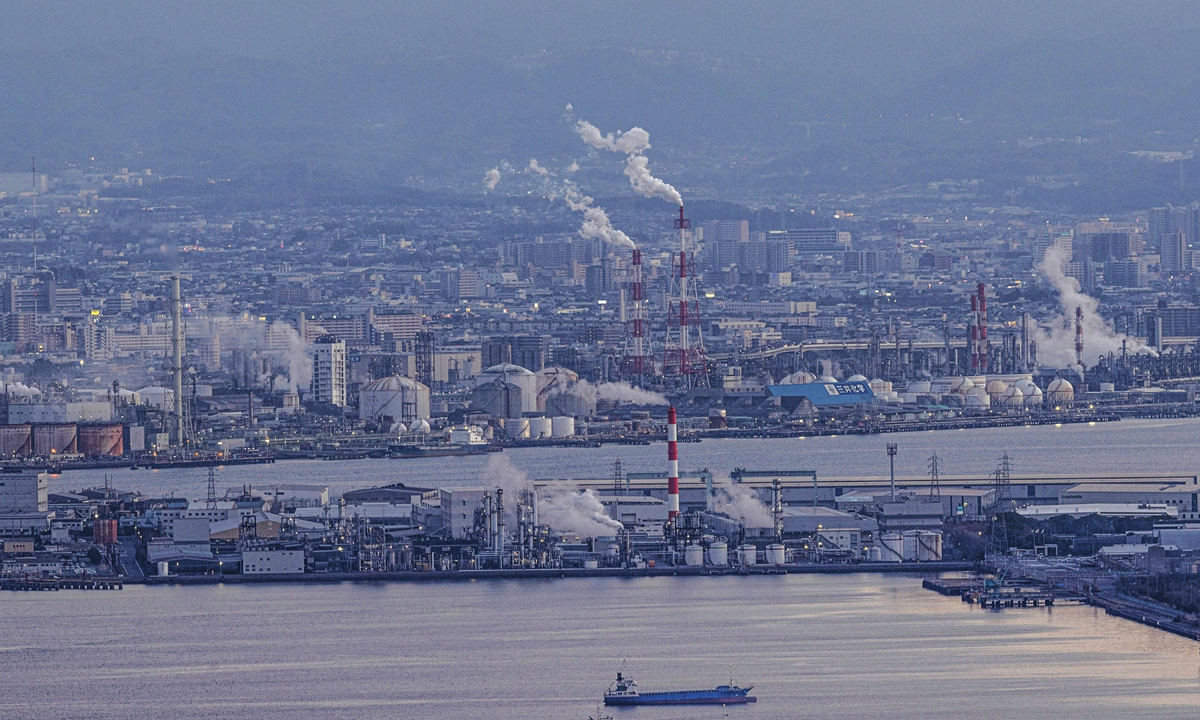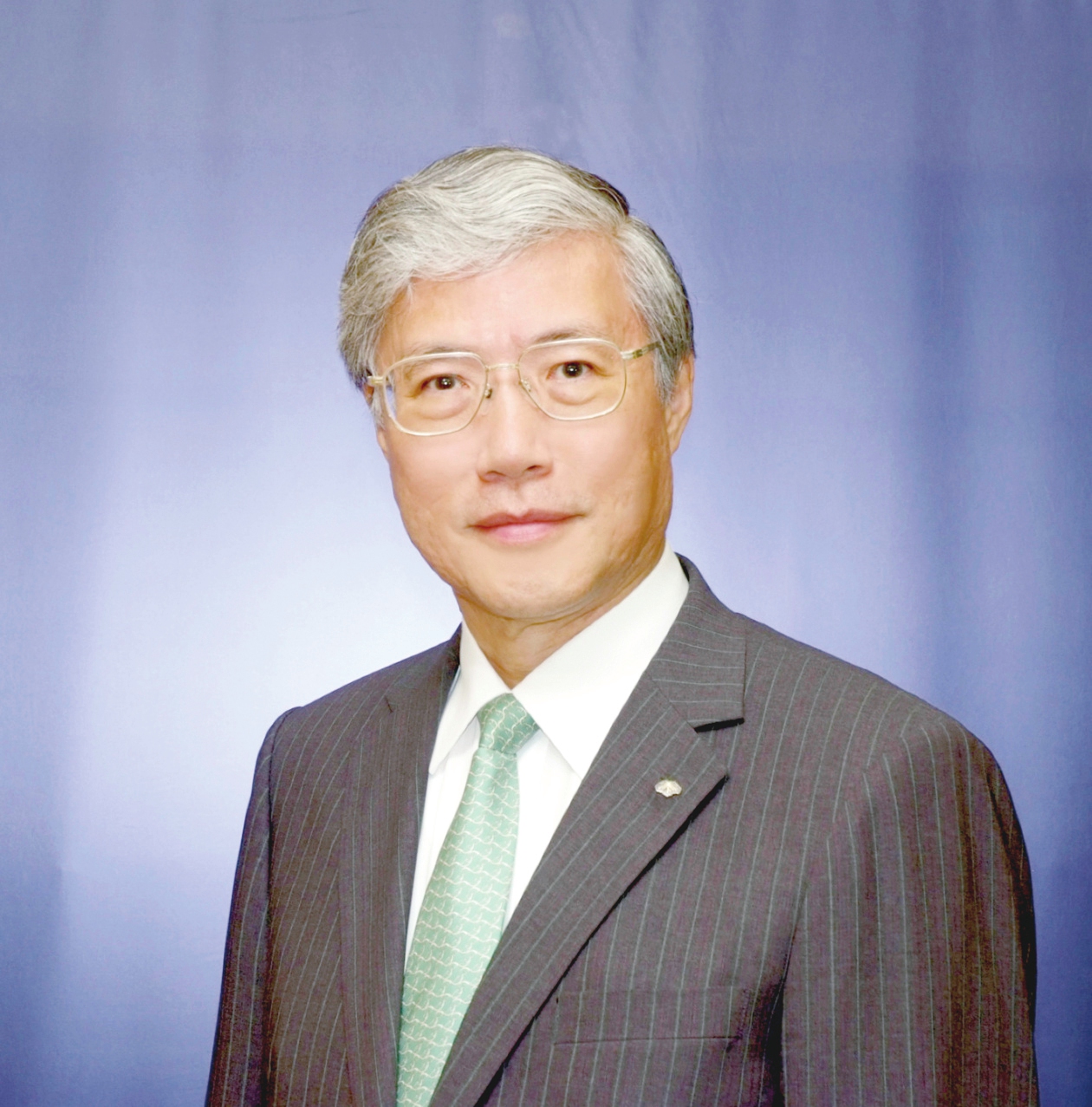
Smoke billows in an industrial district in Osaka, Japan, on February 12, 2024. Photo: VCG
Editor's Note:The bursting of the Japanese economic bubble in the 1990s remains a hot topic of discussion in the field of economics. Among economists who study related issues, Richard Koo, the chief economist of the Nomura Research Institute in Japan and author of Pursued Economy: Understanding and Overcoming the Challenging New Realities for Advanced Economies, has attracted considerable attention for his theory of "balance sheet recession" and concept of "pursued economy."
How does the concept of "pursued economy" provide a new perspective on economic development? What implications does this concept have for the Chinese economy? Global Times (
GT) reporters Zhao Juecheng and Yang Shasha invited Richard Koo (
Koo) to share his perspective.
GT: Why do you come up with the concept of "pursued economy"? What is the connection between this concept and the theory of "balance sheet recession" that you proposed?
Koo: When the bubble burst in the Japanese economy in the 1990s, no one knew the name of the problem. You brought interest rates down to zero, nothing happened. You did Keynesian fiscal stimulus, but pump priming never happened. Until one day I saw a chart showing that Japanese companies had stopped borrowing money and even though interest rates were zero, they were still paying down their debt.
I tried to find out why that was happening. Then I came upon to this idea that they had balance sheet problems. After the bubble burst, problems surfaced and companies had to repair their balance sheets quickly. On an individual level, this is the right thing to do; but when everyone does it at the same time, the economy collapses.
That was how I came to this notion of "balance sheet recession." Then I began to notice that it might not be the only reason why countries were suffering, because some problem existed before "balance sheet reception."
Then I came upon this notion that there's another reason why companies might not want to borrow money, and that is the return on capital is higher in emerging markets than a whole. In that case, even if central bank brings interest rate down to very low levels, the differences in wages are so large that it makes no difference. Companies still do not want to borrow money in their own countries. If a company wants to invest in another country, it needs the currency in that country, not the currency of its own country. But that leads to the same situation as well as in recession, in a sense that household sector is still saving money. But the corporate sector is no longer borrowing money, even at very low interest rates. And the economy starts exploding. I call this the "pursued economy situation."
It doesn't matter whether it is a Western country or an Asian country. They all go through similar stages. And that's where I came up with this concept of "pursued economy" that we should learn how this thing works, and what needs to be done to make sure that you are not swallowed up by this process.
GT: You mentioned in your book that there are two problems for "pursued economy," one is companies turning overseas, and the other is an increase in domestic financial loans. In the book, China is not yet in the "pursued economy" stage, but what preparations can it make for this?
Koo: Middle-income trap has something that is very close to the "pursued economy situation." If you have the lowest cost producer, all the factories from around the world will come to you. Once there is a lower-cost producer elsewhere, all the factories will move there.
From 1978 to 2008, China was the lowest cost producer. Anyone who wanted to move factories, they had to move to China because it was so much more attractive there, and so much more efficient in terms of production.
But in the past decade, the average wages in China have gone up. Some people started talking about the "middle-income trap" issue. Now, China faces competition from countries such as Vietnam, Indonesia, the Philippines, Bangladesh, and India, which aim to attract Chinese factories. The government has to consider how China can become even more attractive to investors, including both domestic and foreign companies.
One huge advantage China has is that it has the largest market in the world, so companies should not want to leave China if they want to stay close to the market.
GT: During the "balance sheet recession," what kind of stimulus policy is effective?
Koo: There are still a lot of people out there who would argue that "just drop money, everything will be fine." However, during the "balance sheet recession," I do not recommend anyone to rely on monetary policy, because it has proven many times over the years and through different countries that monetary policy is largely useless, especially in the face of a "balance sheet recession." The government should encourage businesses to increase borrowing by lowering taxes and other means.
GT: Several decades after the bursting of the economic bubble, we are witnessing signs of renewed vitality in the Japanese economy, such as the stock market reaching new highs. Do you think Japan has finally emerged from its "lost 30 years"?
Koo: There are two parts to this issue. The Japanese companies stop paying down debt around 2012, but it took more than 20 years for Japanese companies to repair their balance sheets. But even though they were repaired, Japanese companies still refuse to borrow money. Because paying down debt is a very painful process.
It has been 30 years after the bubble burst. Lots of younger managers who don't remember that horrible 20 years are now taking over the key parts of the Japanese companies. Since they don't have this psychological trauma, they are willing to do more, including borrowing money.
The other is that Japan has kept interest rates very low, but the global world experienced inflation after the COVID-19 pandemic. Other countries all raised interest rates to tame inflation. Bank of Japan didn't raise interest rates, so the yen fell very sharply. From the foreign perspective, assets in Japan are suddenly very cheap. Therefore, huge amount of money came into Japan, especially the stock market. That's why the stock market is doing very well. But Japan itself hasn't changed much; the inflow of money just makes Japan look good in a way.
GT: What are your expectations for the future of the global economy?
Koo: The developed world will face this problem of how to clean up quantitative easing. Japan did a massive amount, but the Americans, the Europeans, the British…they all did massive amounts of quantitative easing.
The volume of excess reserves in the banking system in all of these economies is huge. That is making the US Federal Reserve's actions to contain inflation very difficult. The recent figures in the US still show that American economy is strong. That's because so much money is in there. This is the first time in history that a central bank has tightened monetary policy with so much excess reserves already in the system. In the future, developed economies will face the problem of how to exit quantitative easing and eliminate excess liquidity. Because there is no precedent, market participants, central banks, and academics will have different views, and the market may experience huge fluctuations.

Richard Koo Photo: Courtesy of Richard Koo

